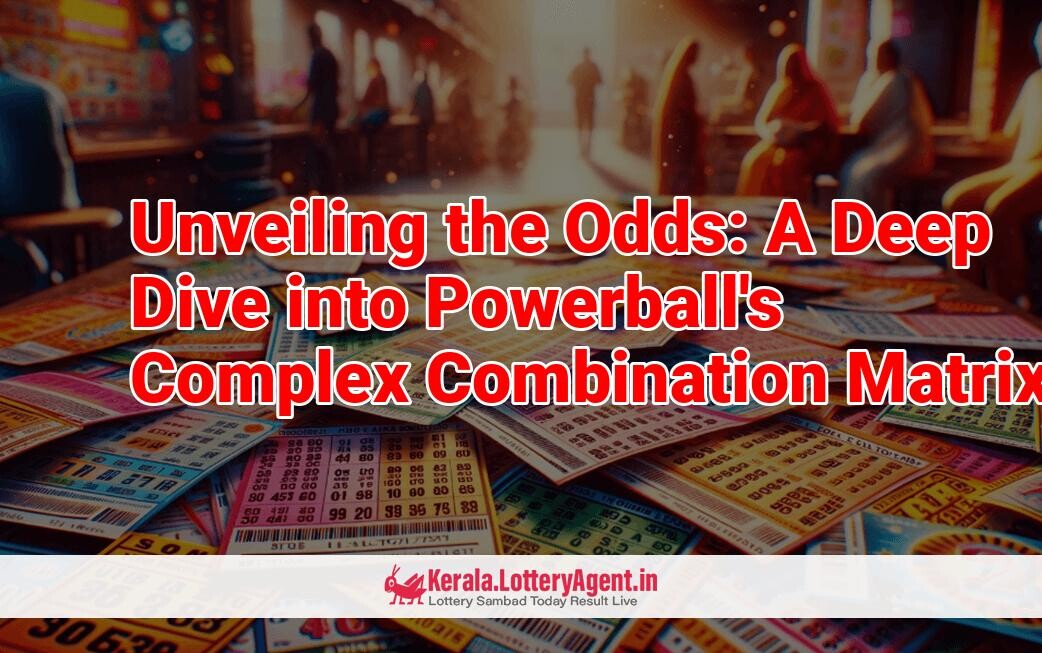
As millions watch the glittering Powerball draw with bated breath, the slim chance of hitting the multi-million jackpot is a dream that captivates many. Though, while Powerball promises a possibility of life-changing riches, the reality is that players are up against staggering odds—a daunting 1 in 292 million. That’s precisely the number of potential combinations in this game of chance, with only one ticket set to emerge victorious.
Understanding the scale of what you’re up against is crucial for any Powerball enthusiast. Let’s break down the game’s intricacies and mathematics, illuminating exactly how many combinations are in play. With clear calculations, this article aims to make sense of the Powerball system.
Firstly, grasping Powerball’s gameplay is essential. It’s a two-drum lottery; players pick five numbers from a selection of 69 white balls, and one additional ‘Powerball’ number from 26 red balls. To win the grand prize, you must match all six numbers in the draw. There are also lesser prizes for partial matches.
Operating with two lottery draw machines—one for the white balls and another for the Powerball—Powerball ensures complete randomness. Balls whirl around chaotically before their release into a transparent display chamber, watched live on national television.
To fathom the total possible combinations, we deploy the binomial coefficient formula, analyzing how to choose five balls from 69 and one Powerball from 26. We proceed in two steps, taking the product of the two individual combination calculations to reveal the total figure. This method yields a formidable 292 million plus combinations.
Powerball is renowned for its difficult odds, a direct result of its large pool of numbers and unique format, distinguishing it from other lotteries. Yet this level of challenge comes with the possibility of unparalleled jackpots. Below is a comparative table outlining the possible combinations for Powerball and other lotteries, highlighting the scale of variance.
Guaranteeing a Powerball win theoretically involves purchasing every possible ticket combination, a number totaling over 292 million tickets at $2 each. However, this strategy is deeply flawed in practice, with a cost that typically supersedes the jackpot itself, totaling more than $584 million.
There are strategies like wheeling systems, quick picks, and the Pick 5 that offer structured approaches to the lottery, but they fall short of assuring victory. The raw truth? Winning the lottery is a matter of pure chance.
The logistical quagmire and financial abyss of buying every combination make the idea not only impractical but also immensely risky. Take, for example, a jackpot of $900 million. Purchasing all combinations would initially appear profitable, with a rough winning total of nearly $993 million. But factors such as shared jackpots and heavy taxes can quickly turn a seeming windfall into a significant deficit.
Now, ponder the Power Play—a feature that lets players increase non-jackpot prizes for an extra dollar per ticket. It’s an attractive option, but it holds no sway over the combinations or odds of claiming the jackpot.
How many tickets should you buy to improve your chances? In theory, the more you buy, the better your odds, scaling down from 1 in 292 million to 1 in 2.92 million with 100 tickets. But never is there a guarantee.
While obtaining a complete list of Powerball combinations is a Herculean task, for those with programming prowess, it’s theoretically within reach. Tools and algorithms can generate such extensive data, though practical applications of such lists are debatable.
Among frequently drawn numbers are 61, 32, 21, 36, 63, and 23. However, lottery draws have no memory; past frequencies don’t dictate future outcomes. Number generators can help craft random ticket combinations, but they too offer no advantage regarding win probability.
Methods like Stefan Mandel’s, successful for smaller range lotteries, are ineffective with Powerball’s vast number spectrum. As for keeping up with winning numbers and purchasing tickets, there are numerous online sources and options, from theLotter to Lottofy. Yet, exercising caution and prudence in online transactions is always advised.
Should Lady Luck smile upon you with a Powerball win, be prepared to navigate the complexities of claiming your prize. Seek expert financial advice, explore anonymity options, and plan thoroughly for the next chapter of your life, potentially as a new millionaire.
In conclusion, the prospect of buying every Powerball combination is a fascinating notion, but ultimately, one that’s shadowed by a multitude of challenges and an unfavorable mathematical and financial outlook. Powerball remains the ultimate gamble, a sprinkle of hope against a backdrop of astronomical odds.











